#numeracy
Text
I've said elsewhere that I reject the idea that counting arises from the fingers.
People often say that base 10 is the obvious choice because we have 10 fingers. Then people come up with other ways of counting fingers to explain away other number systems like the ancient mesopotamian system ("well its because they were counting on individual phalanges!")
As of yesterday I have a new example to undermine the counting-from-fingers idea.
Because if you want a really practical way of counting on your fingers and which will correlate to written numbers, you want base 6.
0..5 on the units hand.
6¹..6⁵ on the sixes hand.
Counts all the way up to 35 and the numbers (digits) you'd write down match 1:1 with your fingers (digits).
If counting arose from the fingers, where's base 6?
EDIT:
I made a silly notation error in the above. Since there are already reblogs I'm not going to change the error, but I feel it needs to be acknowledged.
I wrote 6¹..6⁵ when what I meant was 6×1..6×5.
I'd got distracted by tangential thoughts.
594 notes
·
View notes
Text

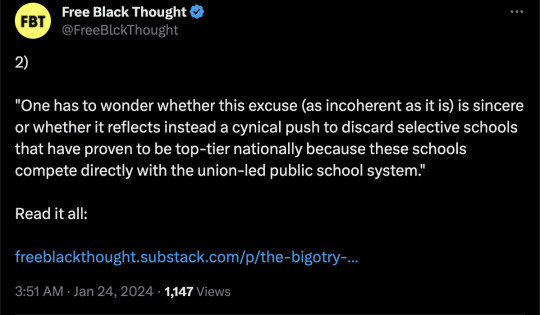
By: Brandy Shufutinsky
Published: Jan 23, 2024
Until about 160 years ago Black American labor was used to benefit the few, especially a small group of privileged white landowners. Today, we are still being used. Progressive academics, activists, and political leaders are constantly exploiting Black Americans as living, breathing excuses for policies that benefit progressives and their constituents but fail Black people.
Chicago Mayor Brandon Johnson has set his sights on eliminating high-achieving magnet schools in the name of equity. Currently, academically gifted students from low socioeconomic backgrounds are able to compete for entrance into high-achieving schools. One need not guess why some Black parents welcome this opportunity for their children. After all, only 17% of Black students are proficient in reading and even fewer (7%) demonstrate proficiency in math. Moreover, in 2022, fewer than 10% of Black third-grade students and just under 11% of low-income third-grade students could read at grade level. These dismal figures entail that a great many talented Black students in Chicago must suffer through classes geared not to them but to their illiterate and innumerate peers. Magnet schools offer these talented students a way out. One would think that policy makers committed to providing access to quality education for all students, not just the ones whose parents were able to send them to private schools, would increase the number of high-achieving schools, rather than eliminate them.
So, why would Mayor Johnson want to eliminate one of the few opportunities for gifted but economically disadvantaged students to access quality education? Well, according to Chicago Public Schools Board CEO, Pedro Martinez, allowing gifted students access to quality education causes “stratification and inequity in Chicago Public Schools.” One has to wonder whether this excuse (as incoherent as it is) is sincere or whether it reflects instead a cynical push to discard selective schools that have proven to be top-tier nationally because these schools compete directly with the union-led public school system.
In Portland, Oregon education leaders are planning to roll out a system of equitable grading that calls for teachers to consider “non-academic factors” when grading student work. Portland Public School Chief Academic Officer Kimberlee Armstrong, a supporter of the policy, argues that in order to address “biases” educators must, wait for it, engage in bias themselves, by “considering the diverse backgrounds and needs of students.” Just how does considering background rather than correct answers and knowledge acquisition reduce bias?
Oregon’s student literacy rates are slightly better than Chicago’s but still fewer than half of students read at grade level, with Black student literacy hovering around 26%. Yet rather than provide students with the necessary resources to achieve basic literacy, Oregon policymakers are simply eliminating any method of measuring student achievement.
We must ask ourselves, who gets lost in educational politicking? Students who desire a quality education are being sacrificed at the altar of progressive policies that do them more harm than good. When I was in the third grade my teacher suggested I be tested for the Gifted and Talented Education (GATE) program. I was attending an under-resourced, high-poverty school where the majority of students qualified for the free-lunch program, including me. My GATE score allowed me access to all of the resources that I would otherwise have missed because my socioeconomic circumstance did not allow for tutors or extracurricular activities, let alone private school tuition. Fast-forward a few decades and instead of providing support for students who find themselves in a situation similar to mine, policy makers are relegating them to mediocrity.
Who benefits from policies that disenfranchise the most vulnerable students? Many organizations that claim to work to improve student achievement by using equity-based practices have sprouted up over recent years. They offer services to school districts, providing teacher training and curricular materials with a stated goal not of teaching students the knowledge and skills they need to succeed but of “building social justice starting in the classroom.” These organizations are very successful in using our public schools to build their client base and sell their obviously political goals of equity and social justice. When it comes to improving student achievement, however, their results are dismal. Policies that eliminate access to quality education, lower standards and reframe what knowledge is will not help Black students, it will harm them. Politicizing education by lowering expectations is a racist endeavor that denies Black Americans the credit they rightly deserve for overcoming obstacles and reaching the highest levels of success. It’s the bigotry of low expectations.
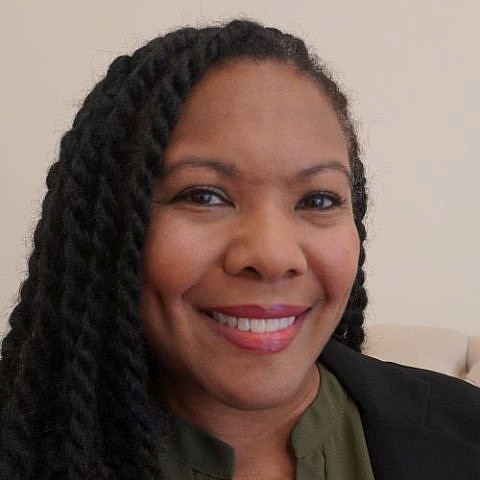
Brandy Shufutinsky is a social worker, writer, researcher, and advocate. She holds her Doctorate in International and Multicultural Education from the University of San Francisco, her MSW from the University of Southern California, and her MA in International Relations from the University of San Diego. Dr. Shufutinsky has worked towards advancing the rights of victims and survivors of domestic violence and sexual assault through practice, education, and research, and is now focusing her advocacy on developing intercultural and academic opportunities to enhance liberal democratic ideals as the director of education and community engagement with the Jewish Institute for Liberal Values. Follow her on Twitter.
==
This is what "equity" does. In order to force everybody to have equal outcomes, it has to eliminate the ability for people to overachieve or exceed others. Because that would make people jealous and would be "unfair." It can't make everybody an Elon Musk, but it can make everybody a Joe Schlub. And so "equity" always results in the lowest of the lowest common denominators. When you inevitably use force to ensure that happens, that's how you get Russia and China.
The people activists who are putting in these policies are the exact same people who put in the policies that caused this illiteracy and innumeracy in the first place.
#Brandy Shufutinsky#Brandon Johnson#equity#magnet school#literacy#numeracy#bigotry of low expectations#corruption of education#education#equitable grading#inequity#racial bias#wokeness#woke#wokeism#cult of woke#wokeness as religion#religion is a mental illness
7 notes
·
View notes
Text
Just realised I managed to get the numbering wrong on the alphabet in the poem posts, despite checking it several times. Apologies for that. My issues with numeracy have been a source of shame for me since I was a child (and probably more so for my parents) and it seems I won’t be escaping them any time soon.
Corrected it now anyway. Apologies again for any confusion or annoyance.
11 notes
·
View notes
Quote
Data from 77 countries show that less than three-quarters of children aged between 3 and 5 years old are developmentally on track in at least three out of the four domains of literacy-numeracy, physical, social-emotional, and learning. At approximately 10 years old, the majority of children in low- and middle-income countries are unable to read and understand a simple text. These foundational skills are the building blocks for further learning and skills development, the report notes. Basic literacy and numeracy; transferable skills including life skills and socioemotional skills; digital skills, which allow individuals to use and understand technology; job-specific skills, which support the transition into the workforce; and entrepreneurial skills are essential for children to thrive. These skills are also critical for the development of societies and economies.
‘Around 3 in 4 youth lack skills needed for employment, new report says’, UNICEF
#UNICEF#child development#numeracy#physical#social-emotional#learning#foundational skills#skills development#literacy#life skills#socioemotional skills#digital skills#job-specific skills
3 notes
·
View notes
Text
Abacus Classes in Singapore: Develop mental math skills with Kiya Learning's abacus classes in Singapore. Our courses offer a fun and effective way for students to improve calculation speed and accuracy. With trained instructors and hands-on practice, we help students build a strong foundation in mathematics.
#AbacusClasses#Singapore#Education#Mathematics#Learning#ChildDevelopment#MentalMath#SingaporeEducation#AbacusSkills#BrainTraining#SingaporeAbacusClasses#Numeracy#SingaporeChildren#SingaporeLearning#AbacusTechniques#SingaporeParents#AbacusTraining#SingaporeStudents#MathSkills
0 notes
Text
Championing Inclusive Education in New Zealand: Navigating Risks and Strategies for Tertiary Institutions
Explore how inclusive education is shaping the future of tertiary education in NZ. Dive into challenges, strategies, and the impact on society. #InclusiveEducationNZ #EducationForAll 📚
Inclusive Education in New Zealand: Addressing Overlooked Tertiary Education Domains
In Aotearoa New Zealand, the realms of tertiary education extend far beyond traditional academic subjects, encompassing essential facets such as adult literacy and numeracy (LN), Māori cultural capability, Pacific cultural centredness, and support for neurodiversity. However, these crucial domains often find…

View On WordPress
#Accessibility in Education#Community Partnerships#Cultural Competency#Education#education reform#Educational Equity#educational innovation#Educational Policy#Graeme Smith#Inclusive Education#Literacy#Maori education#neurodiversity#New Zealand education#Numeracy#Pacific education#Social Mobility#Teacher Training#Tertiary Education
0 notes
Text
#British Asian Trust#LiftEd initiative#education#4 million kids#India#literacy#numeracy#foundational skills#consortium#partners#investment#Michael & Susan Dell Foundation#Reliance Foundation#Standard Chartered Bank#EdTech Accelerator#state governments#schools#educator training#digital solutions#at-home learning#low-income communities#social finance#King Charles III#Prince of Wales#British Asian business figures#social finance initiatives#Quality Education India Development Impact Bond#QEI DIB#UK government#Skill Impact Bond
0 notes
Text
Happy New Year 2024 Blog!!!
Happy New Year 2024 Blog!!! #math #maths #Mathematics #numeracy #innumeracy #computers #Science #teacher #teaching #EdTech #MathChat #SciChat #CompSci #HPC #STEAMchat https://shadowfaxrant.blogspot.com/2024/01/happy-new-year-2024.html

#math#maths#Mathematics#numeracy#innumeracy#computers#Science#teacher#teaching#EdTech#MathChat#SciChat#CompSci#HPC#STEAMchat
0 notes
Text
Here at IDL we provide Literacy, Numeracy and Wellbeing interventions to over 4200 schools across the globe. We also provide screeners for dyslexia and dyscalculia. I would love to offer your school a free trial of IDL with no obligation to purchase, below is some information about IDL but I would gladly arrange a demonstration for you at a time that is most convenient to you.
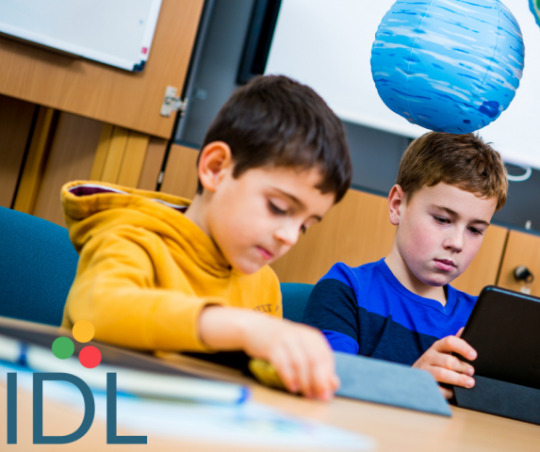
The IDL Literacy Intervention is a speaking-computer based multi-sensory system which supports learners with dyslexia and other learning difficulties to increase their reading and spelling ages. The programme was specifically designed for those with dyslexia and is used as an intervention but can also be used effectively as a school wide literacy solution.
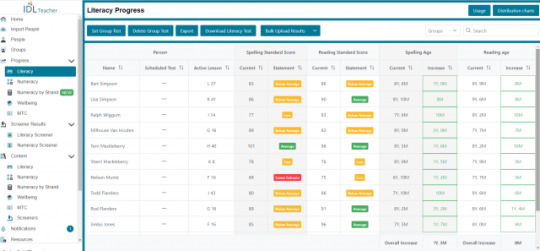
IDL Numeracy is a maths software resource that helps to improve ability for low-attaining learners in mathematics. It includes a fully graded course. In order to be inclusive, the lessons in IDL Numeracy are designed to reduce the stress those with dyscalculia would ordinarily feel when faced with mathematical problems.
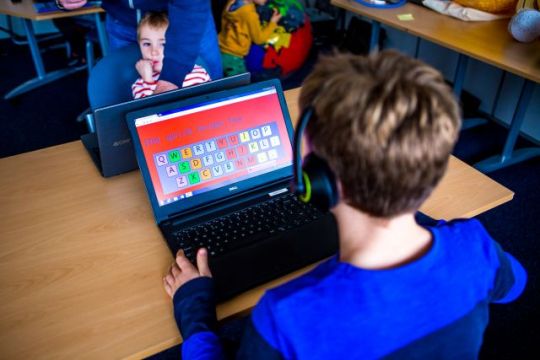
IDL Wellbeing is an exciting new product designed to integrate with a whole-school approach to mental health, toughness and behaviour management. Following 2 years of development alongside a psychologist, IDL Wellbeing has been developed using contemporary theories and mindfulness practices. Studies have proven that teaching resilience and emotional literacy can reduce incidents of poor mental health later. IDL Wellbeing adopts an integrated approach to support children, aged 7 -13, to understand and address unwelcome emotions as well as encourage positive ones.
#wellbeing#SEN#Screeners#Numeracy#middle#math#literacy#learning#intervention#high school#Elementary#e-learning#Dyslexia#dyscalculia
0 notes
Text

Some young people are at greater risk of becoming NEET than others
Hey, have you ever considered how important job satisfaction is for the health and longevity of workers? It's a pretty big deal. We recently asked parents who attend our homework club training workshops an interesting question. We wanted to know if they've discovered their unique talents, regardless of what they do for a living. We gave them three options to choose from:
"Have you discovered your unique talents, regardless of what you do for a living?
absolutely! I make sure to dedicate time to my true passions and abilities, and I dream of turning them into a career someday;
yes, I recognize that I have a range of talents, although I don't think any of them could be turned into a source of income;
I've never really thought about it, and nothing specific comes to mind.
Surprisingly, 8 out of 10 said they never thought about it and chose option "3".
Did you hear the news today? The number of young people who are not in education, employment, or training (NEET) has decreased, but there's still one in ten 16-24 year olds in the UK who are economically inactive. Imagine the future you want for the kids in your care.
You know, we're largely what we think ourselves into being. If you're interested in discovering the tricks of finding the careers your kids will love and enjoy, I have a breakthrough workbook that can help. It could change your life and theirs forever!
Let me hit you with some facts: over half of long-term NEET young people (not in education, employment or training) finished school without good GCSEs. It's not good for young people to be without school or work when they start their adult life. However, sometimes not being in school or work isn't terrible. If someone is without it for a few weeks or months, it can be hard and uncertain, but it probably won't ruin their future job prospects or salary. If someone is without education, employment, or training for a year or more, it's much worse and can seriously hurt their chances of getting a good job in the future and how much they can earn. There's a perception that youth unemployment isn’t a problem in 2023, but it's still a significant issue. Too many young people are getting stuck NEET, and we should worry about this even more given our current period of economic uncertainty.
So, what can we do as adults to help? Ultimately, carers' responsibility is to reteach children how to make good choices. They must be willing to get back into their children's lives and develop robust attitudes about respect, friendship, and responsibility.
It's unacceptable that nearly 11.3% of all 18–24-year-olds are not earning or learning today. Action is needed now to prevent the long-term scarring effects of being locked out of the labor market. (NEET - Youth Futures Foundation)
Some young people naturally flourish in school, while others struggle due to difficult life circumstances. But there is another group at risk of disengaging from learning without substantial issues or barriers. We must be flexible in our approach to provide effective support for these young people who are at risk of becoming NEET. Each young person is an individual, and it's essential to identify early characteristics that may be markers of a young person disengaging from compulsory education.
The group who becomes NEET often lacks fundamental numeracy and literacy skills needed to succeed in further education, training, or the world of work. Classes that focus on getting the basics right first would provide those most at risk with the necessary skills needed for future advancement.
Did you know that playing video games, doing worksheets together with your kids can actually improve your relationship and give you useful parenting tools? If you're having trouble getting your kids to spend time with you, try try some of our worksheets and playing computer games with them. It's a great opportunity to have conversations while sharing an activity. We've even prepared some worksheets to help you get started. These are excellent worksheets to talk through multiplication and addition facts with your kid:
Addition: https://ttlcic.com/products/addition-table-with-answers-and-zero-up-to-12
Multiplication: https://ttlcic.com/products/multiplication-square-with-answers-and-zero-up-to-12
Learning about games will also give you the language to have effective conversations with your children. Here are our FREE math puzzles for you: https://ttlcic.com/products/puzzles.
Understanding the language your children use gives you the tools to have more meaningful conversations with them. Plus, many games provide unique opportunities for important conversations. Discussing values through fictional characters is often a more comfortable way to talk about real-life scenarios. It's easier to have a conversation about a character's choices than it is to discuss what your child should do in a given situation. Sometimes, young people need help finding things they're passionate about. Creatively finding links between the games they play and other activities is a natural way to transition between them. Our mascot Skoory the squirrel features in two of our games:
Squirrels Are Going Nuts
Skoory Rush
By the way, our career awareness workbook Skoory’s Career Awareness Book https://ttlcic.com/products/skoorys-career-awareness-book consists of 24 career awareness worksheets usually sold for £24, but we're offering them as a stand-alone workbook for just £5.60. It's quite a steal!
0 notes
Text
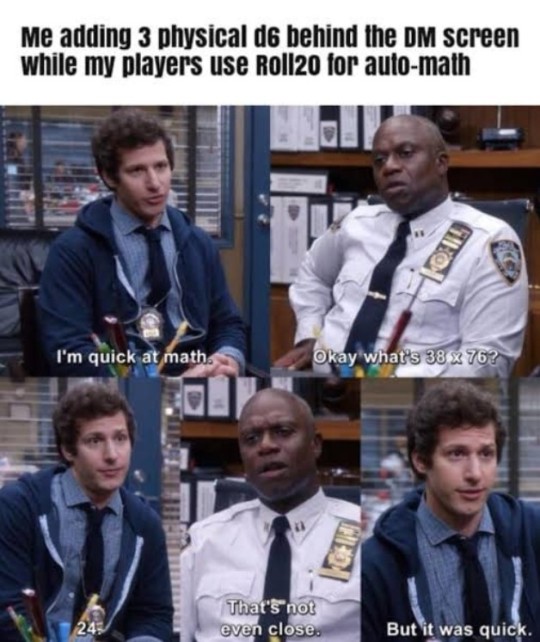
This meme reminds me of an article I wrote a while back: Does D&D help with Math (Maths for us Brits).
1 note
·
View note
Text
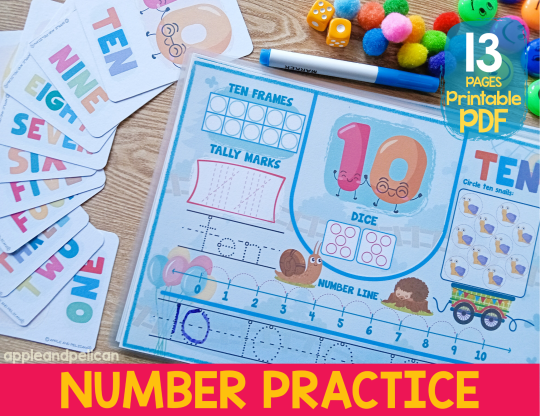




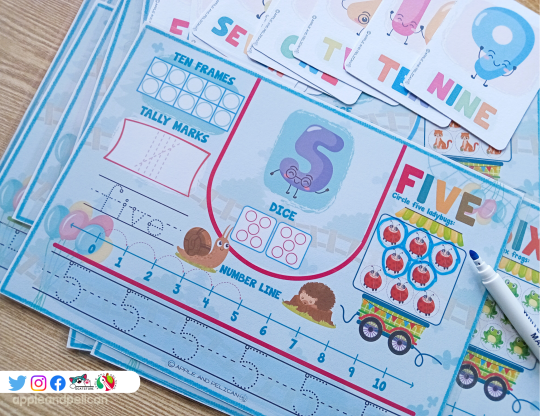
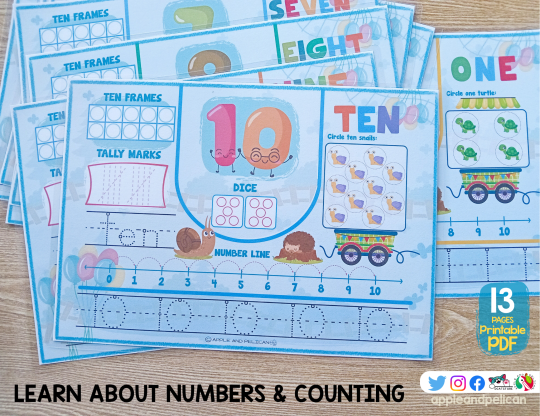
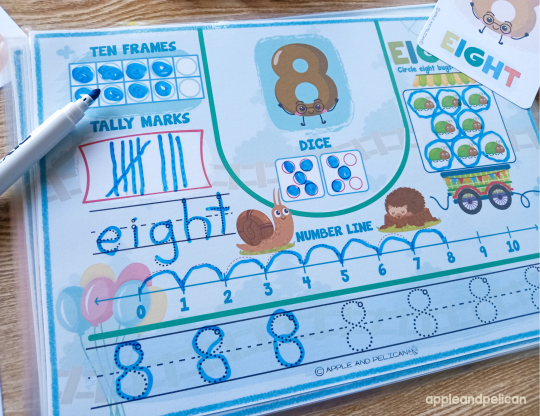
Number Tracing Worksheet For Toddler Homeschool Math Learning Busy Binder Preschool, Pre-K Workbook. Number Counting Activity Flash Cards
Link in bio
https://www.etsy.com/listing/1521223233/
#worksheet #printable #tracing #trace #numbers #1to10 #maths #numeracy #numbersense #write #busybook #learningbinder #busybinder #etsy #workbook #counting #numbercount #tenframes #Montessori #preschool #Kindergarten #pre-k #toddler #learningmeterial #preschoolcurriculum #Matching #numbermatch
#homeschool#tracing#printable#flashcards#kindergarten#pdfbooks#preschool#mathematics#numbers#trace#learning#learningmaterial#numeracy#numbersense
0 notes
Text
Literacy teaching and learning in the COVID-19 crisis and beyond.
International Literacy Day 2020 focuses on “Literacy teaching and learning in the COVID-19 crisis and beyond,” especially on the role of educators and changing pedagogies. The theme highlights literacy learning in a lifelong learning perspective, and therefore, mainly focuses on youth and adults. The recent Covid-19 crisis has been a stark reminder of the existing gap between policy discourse and reality: a gap that already existed in the pre-COVID-19 era and negatively affects the learning of youth and adults, who have no or low literacy skills, and therefore, tend to face multiple disadvantages. During COVID-19, in many countries, adult literacy programs were absent in the initial education response plans, so most adult literacy programs that did exist were suspended, with just a few courses continuing virtually, through TV and radio, or in open air spaces.
What is the impact of the COVID-19 crisis on youth and adult literacy educators and teaching and learning? What are the lessons learnt? How can we effectively position youth and adult literacy learning in global and national responses and in strategies for the recovery and resilience-building phase?
By exploring these questions, International Literacy Day 2020 provides an opportunity to reflect on and discuss how innovative and effective pedagogies and teaching methodologies can be used in youth and adult literacy programs to face the pandemic and beyond. The Day will also give an opportunity to analyse the role of educators, as well as formulate effective policies, systems, governance and measures that can support educators and learning.
Online Events
The global celebrations of International Literacy Day on 8 September 2020 will be composed of two virtual meetings:
Meeting on ‘Literacy teaching and learning in the COVID-19 crisis and beyond: the role of educators and changing pedagogies’ (13:30-15:30 in Paris time)
Meeting on the Laureates of the UNESCO International Literacy Prizes 2020 (16:00-17:00 in Paris time).
Both meetings will be accessible by registering through Zoom.
A full list of international events can be found here.
“At a time when we need to reinvent a world of hope, literacy is more important than ever. On this International Day, I thus invite all those involved in education to redouble their investments and mobilize all their resources to unleash the potential of each individual in the service of a shared world.”
— Audrey Azoulay, UNESCO Director General, on the occasion of International Literacy Day 2022
#adult literacy programs#numeracy#literacy#international literacy day#8 september#covid 19#adult literacy#young literacy
0 notes
Text
Hope Bus education provides new opportunities for Iraqi kids
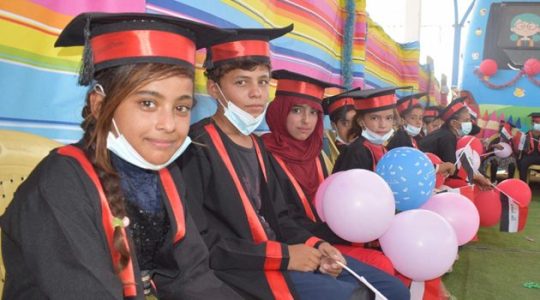
The Iraqi Children Foundation run mobile schools called the Hope Buses. These deliver tutoring, healthcare and support to orphans and displaced children living in disadvantaged neighborhoods across Baghdad.
The ICF has announced that a third Hope Bus will be in operation and each of these buses are designed to accommodate children's needs. These testimonies from two ICF members of staff, highlights the ongoing efforts of the Iraqi Children Foundation and how their work with families are producing remarkable results.
"Farah and her mother worked in the streets, collecting empty metal cans to sell. Farah left school when she was six years old, and was arrested for begging when she was just seven. Farah’s father was killed in a battle against ISIS, so her mother is a widow.
Farah, her mother, and her brother lived in extreme poverty in one small room. She was suffering from a skin condition, dental problems and malnutrition, which were depriving her of childhood experiences. Suffering, poverty, and deprivation were all that she knew. Our social workers then convinced Farah’s mother to let her come to the Hope Bus.
Just five months after joining the Hope Bus, Farah’s life has turned around. She has received proper medical treatment, is getting healthy food every day and is no longer malnourished. Farah is no longer working in the streets, and she spends her time in a child-friendly environment where she can finally play and be a child.
She receives a daily education and now has new clothes to wear. Our Street Lawyers also helped Farah’s mother to get a social welfare allowance. After that, the team found a good job for Farah's mother, which provides the family with a stable source of income."
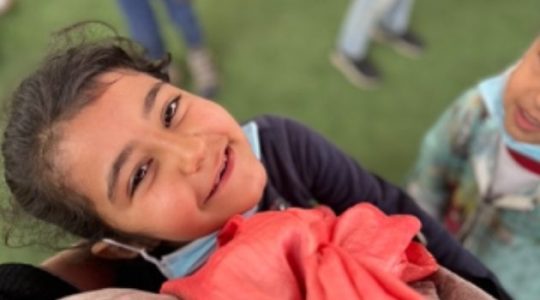
"Hussein used to come every day to the Hope Bus, and stand far away watching the children of the bus while they were playing. One day the teacher asked Hussein to register on the Hope Bus, but Hussein started crying and ran away.
The teacher visited Hussein’s house and met his family, telling them that Hussein should come and join the children on the Hope Bus. Hussein’s mother told the teacher that Hussein was ashamed of his appearance, as he suffers from deformities to the face and head as a result of being burned when he was younger.
Hussein was worried that the other children would make fun of his appearance. A social worker spoke with Hussein and convinced him that the other children would welcome him with love, consider him their friend and would never make fun of his appearance.
She also explained that a person is not judged by his external looks but by his morals, especially his personality and work. Hussein agreed to join the children on the Hope Bus, and now spends his days having a fun and happy time with other kids."
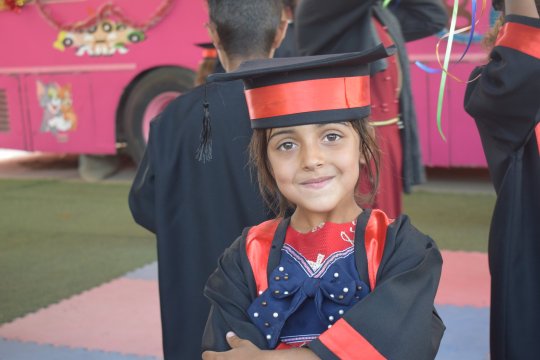
#iraqi children foundation#iraq#iraqi#hope bus#icf#manchester#west didsbury#liverpool#uk#london#scotland#education#child welfare#unicef#Hussein Al-alak#iraq solidarity news (al-thawra)#mosul#newcastle#literacy#numeracy#bas résilles#iraqi community#refugees welcome#refugee rights#united nations#solidarity#bbc news#press release#social media#tumblr
0 notes
Text
The Challenges of Making Literacy and Numeracy Sexy: An In-depth Exploration
ransform Literacy & Numeracy with a values-driven approach. Make LLN not just 'sexy,' but empowering. Dive into our insights and inspire learning today!
The Challenge of Making Literacy and Numeracy Engaging
Literacy and Numeracy (LN) are fundamental skills, essential in education and personal development. Despite their importance, the task of making LN appealing, especially to adult learners in trades and vocational fields, continues to be a formidable challenge.
Traditional teaching methods often portray LN as dry and tedious subjects. These…

View On WordPress
#Accelerated Learning#Adult Learning#Deficit Thinking#Education#empowerment#Graeme Smith#Holistic Education#Literacy#Manaakitanga#Numeracy#Real-world Relevance#Tapatoru Programme#Tertiary Teacher Education#thisisgraeme#Values-driven Teaching
0 notes